
Deutsches Eck: Where History and the Rhine Converge
Deutsches Eck, or 'German Corner,' is a striking landmark in Koblenz, Germany, where the Moselle River meets the majestic Rhine. This historic confluence point is marked by an imposing equestrian statue of Emperor William I, symbolizing the unification of Germany. The statue stands proudly atop a monumental pedestal, offering panoramic views of both rivers and the surrounding landscape. The area around Deutsches Eck is steeped in history and is an integral part of Koblenz’s cultural tapestry. Visitors can stroll along the charming river promenades, explore the well-preserved medieval architecture, and visit the nearby Deutsches Eck museum, which delves into the rich history of the German Empire. The lush green parks surrounding the monument provide a perfect setting for picnics and leisurely walks. In addition to its historical significance, Deutsches Eck is a vibrant hub for cultural events and festivals throughout the year. Whether you are interested in historical reenactments, music festivals, or local markets, there is always something happening at Deutsches Eck to enrich your visit. The scenic cable car ride across the Rhine to the Ehrenbreitstein Fortress offers another vantage point to appreciate the beauty and heritage of Koblenz.
Local tips in Deutsches Eck
- Visit early in the morning to avoid crowds and enjoy a peaceful atmosphere.
- Take the cable car to Ehrenbreitstein Fortress for stunning aerial views of Deutsches Eck.
- Check the local event calendar to catch cultural events or festivals during your visit.
- Wear comfortable walking shoes to explore the riverside promenades and nearby parks.
Deutsches Eck: Where History and the Rhine Converge
Deutsches Eck, or 'German Corner,' is a striking landmark in Koblenz, Germany, where the Moselle River meets the majestic Rhine. This historic confluence point is marked by an imposing equestrian statue of Emperor William I, symbolizing the unification of Germany. The statue stands proudly atop a monumental pedestal, offering panoramic views of both rivers and the surrounding landscape. The area around Deutsches Eck is steeped in history and is an integral part of Koblenz’s cultural tapestry. Visitors can stroll along the charming river promenades, explore the well-preserved medieval architecture, and visit the nearby Deutsches Eck museum, which delves into the rich history of the German Empire. The lush green parks surrounding the monument provide a perfect setting for picnics and leisurely walks. In addition to its historical significance, Deutsches Eck is a vibrant hub for cultural events and festivals throughout the year. Whether you are interested in historical reenactments, music festivals, or local markets, there is always something happening at Deutsches Eck to enrich your visit. The scenic cable car ride across the Rhine to the Ehrenbreitstein Fortress offers another vantage point to appreciate the beauty and heritage of Koblenz.
Iconic landmarks you can’t miss
Deutsches Eck
Experience the breathtaking beauty and rich history at Deutsches Eck, where the Rhine and Moselle rivers converge in Koblenz.
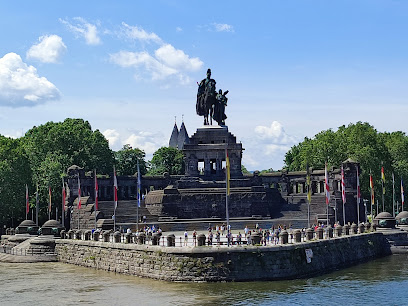
Ehrenbreitstein Fortress
Explore a majestic fortress overlooking the Rhine and Moselle, offering panoramic views, historical insights, and cultural experiences in the heart of Koblenz.
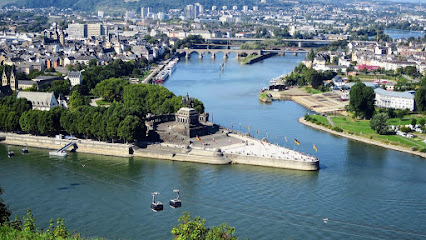
Görresplatz
Experience the vibrant heart of Koblenz at Görresplatz, a historic square brimming with culture, charm, and captivating stories etched in stone and celebrated in lively local events.
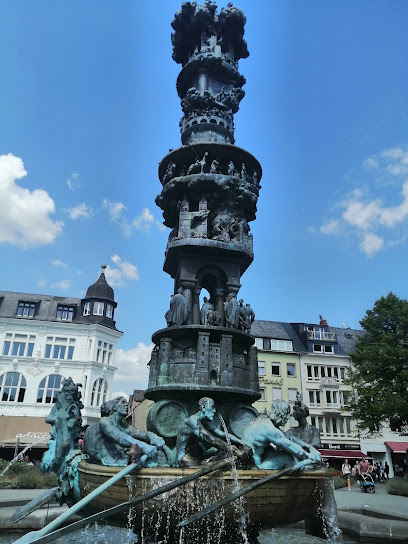
Memorial of German Unity
Witness the confluence of history and rivers at the Memorial of German Unity in Koblenz, a symbol of Germany's journey through division and reunification, offering panoramic views.
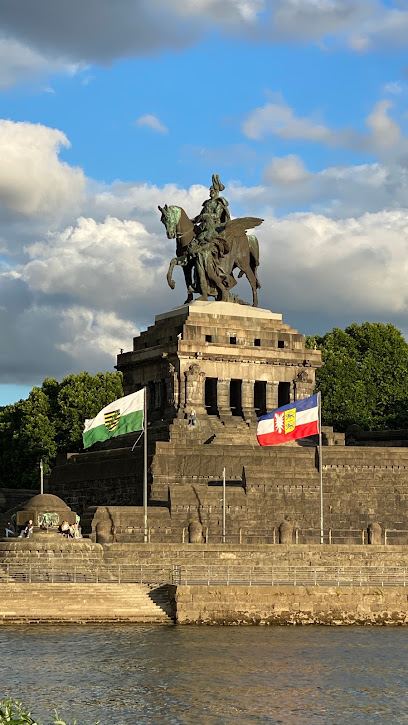
Basilica of St. Castor
Discover Koblenz's oldest church, the Basilica of St. Castor, a Romanesque masterpiece with a rich history, stunning architecture, and a serene atmosphere near the Deutsches Eck.
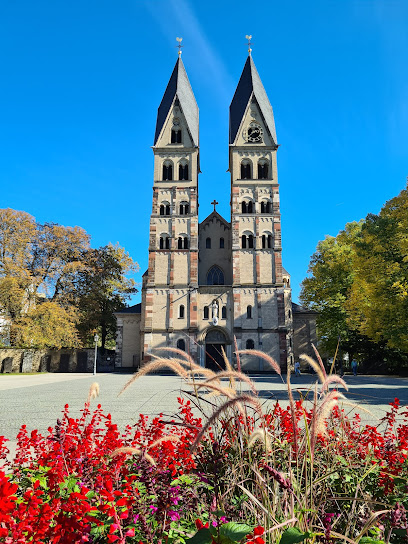
History Column
Discover Koblenz's captivating history etched in stone at the History Column on Görresplatz, a vibrant square where the past meets the present in the heart of the Old Town.
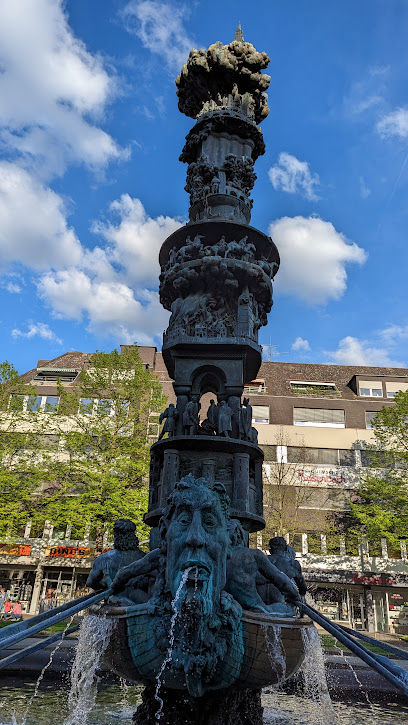
Joseph-Görres-Denkmal
Honoring Joseph Görres: A monument to freedom of speech and intellectual pursuit in the scenic Kaiserin-Augusta-Anlagen, Koblenz, reflecting his lasting impact on German history.
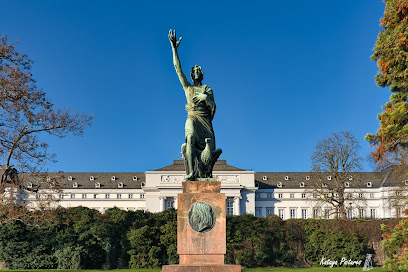
Peter-Altmeier-Denkmal
Honoring Peter Altmeier, the influential Minister-President of Rhineland-Palatinate, this monument symbolizes regional unity and post-war reconciliation near Deutsches Eck in Koblenz.
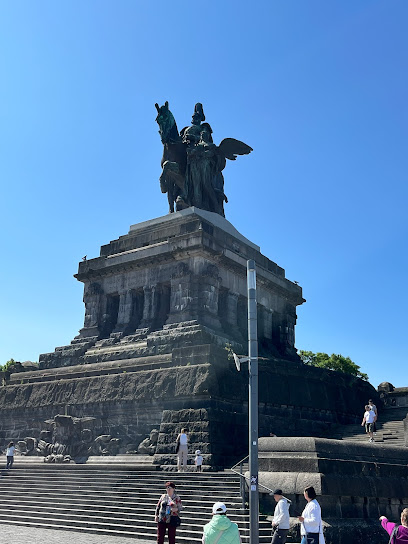
Denkmal der deutschen Einheit
Witness the confluence of history and rivers at the Denkmal der Deutschen Einheit in Koblenz, a powerful symbol of German unity and resilience at the Deutsches Eck.
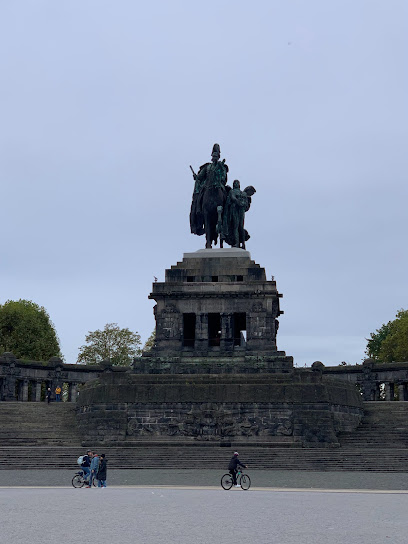
Unmissable attractions to see
Deutsches Eck
Discover Deutsches Eck, a historic landmark in Koblenz where the Rhine and Moselle rivers converge, rich in culture and breathtaking views.
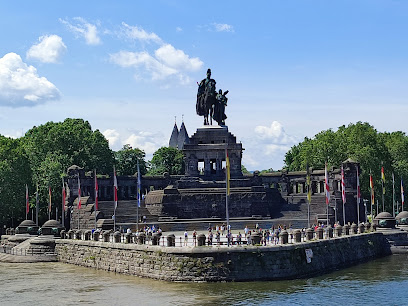
Konrad-Adenauer-Ufer
Explore the scenic Konrad-Adenauer-Ufer in Koblenz, where the Rhine meets the Moselle, offering stunning views and delightful riverside experiences.
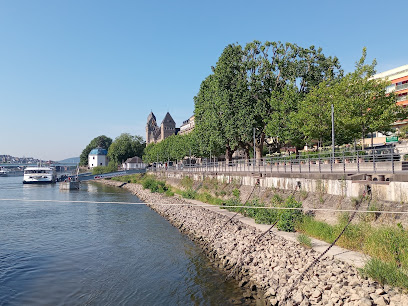
Seilbahn Koblenz - Talstation
Discover the breathtaking views and rich history at Seilbahn Koblenz, the iconic gondola lift over the Rhine River in Germany's historic Koblenz.
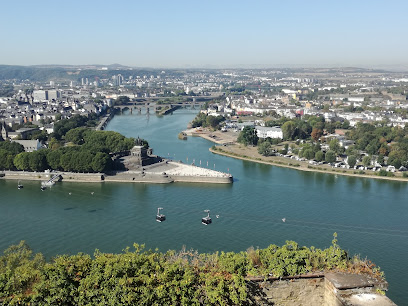
Koblenzer Kanten: Rhein-Mosel-Blick
Discover breathtaking views of the Rhine and Moselle rivers at Koblenzer Kanten, a premier observation deck in Koblenz, Germany.
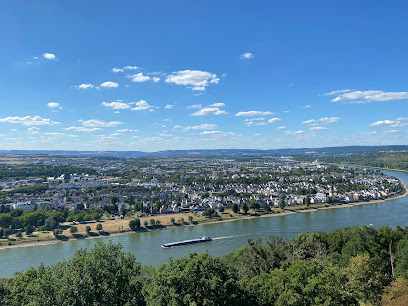
Basilica of St. Castor
Explore the Basilica of St. Castor in Koblenz, a stunning example of Romanesque architecture and a serene escape into history.
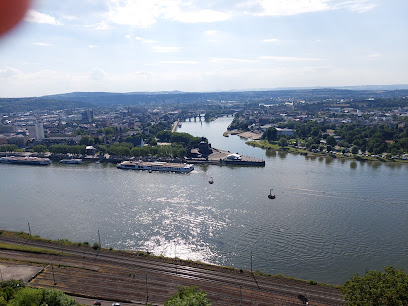
History Column
Discover the History Column in Koblenz, a striking memorial celebrating the city’s rich heritage and vibrant atmosphere.
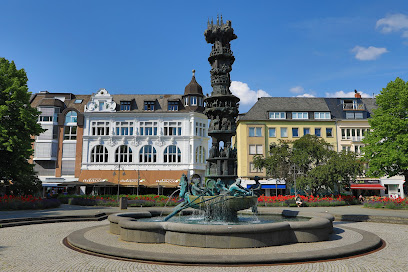
Anleger 3 - Hölzenbein
Discover the scenic beauty of the Rhine River at Anleger 3 - Hölzenbein, a perfect spot for relaxation and local culture in Koblenz.
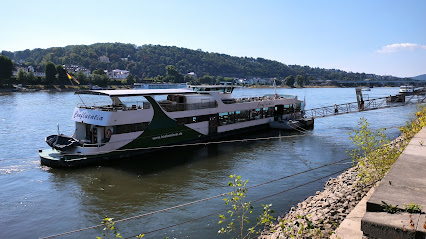
Arkadischer Quadratmeter
Explore the picturesque Arkadischer Quadratmeter in Koblenz, a charming tourist attraction blending history, beauty, and local culture.
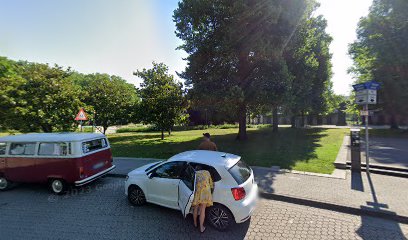
Denkmal- Engel der Kulturen
Discover the Engel der Kulturen in Koblenz, a stunning monument symbolizing unity and diversity among cultures amidst the city's historical beauty.
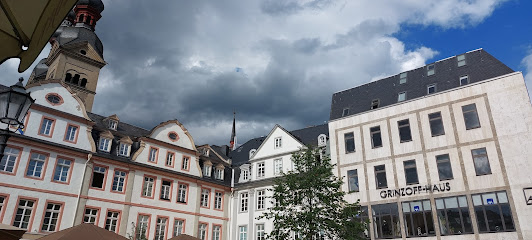
Essential places to dine
Altes Brauhaus
Discover authentic German cuisine and locally brewed beers at Altes Brauhaus in Koblenz – a must-visit for food lovers!
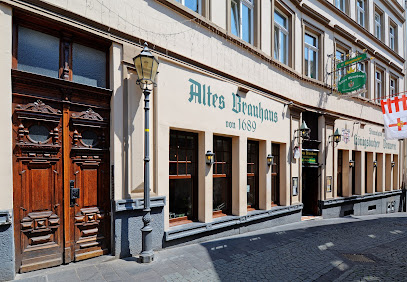
adaccio
Savor authentic Italian flavors at Adaccio in Koblenz—where delicious food meets vibrant ambiance.
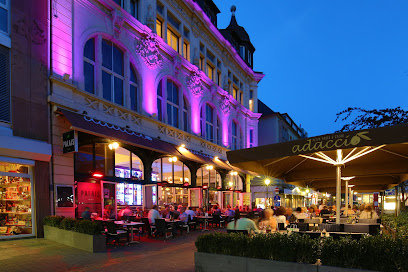
Wacht am Rhein
Discover culinary delight at Wacht am Rhein in Koblenz - where exquisite pizza meets breathtaking riverside views.
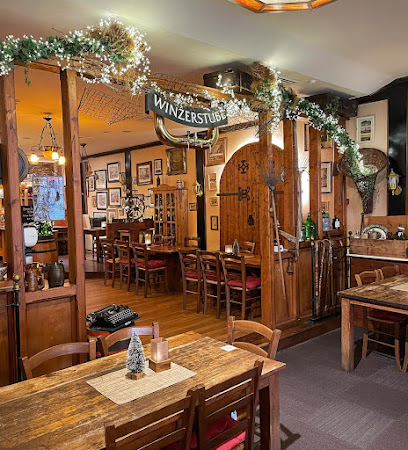
ALEX Koblenz
Experience the best of German cuisine and delightful pastries at ALEX Koblenz - where every meal is a celebration.
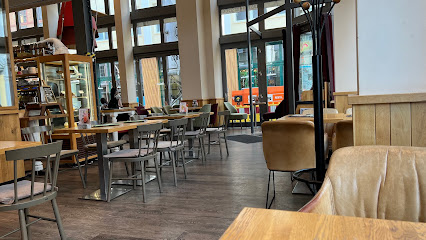
An Nam Asia Fusion & Sushi
Discover the rich flavors of Vietnam at An Nam Asia Fusion & Sushi in Koblenz - where tradition meets modern culinary creativity.
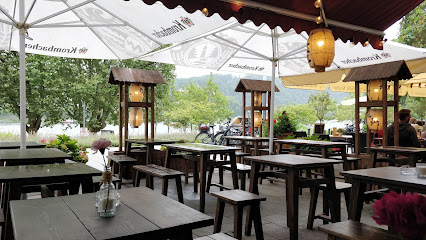
Pegelhaus
Discover Pegelhaus in Koblenz: A premier German restaurant offering exquisite cuisine with stunning views of the Rhine River.
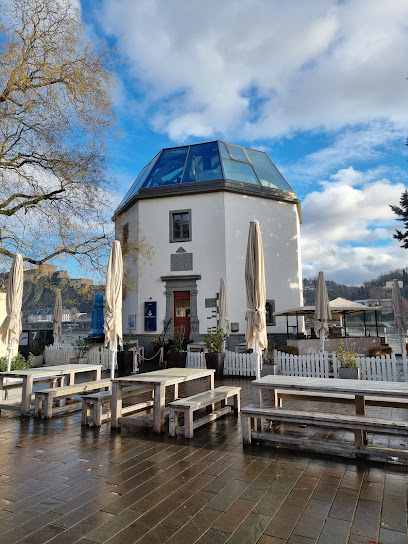
SauBar / Koblenz
Experience the best of German cuisine at SauBar in Koblenz – where tradition meets modern culinary artistry.
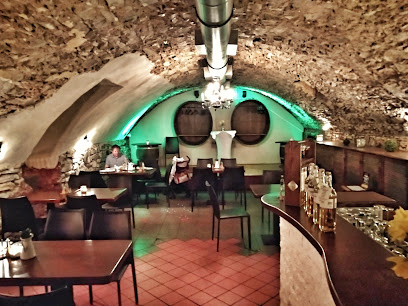
La Gondola - Koblenz
Savor authentic Italian cuisine at La Gondola in Koblenz – where every meal is a celebration of flavor and tradition.
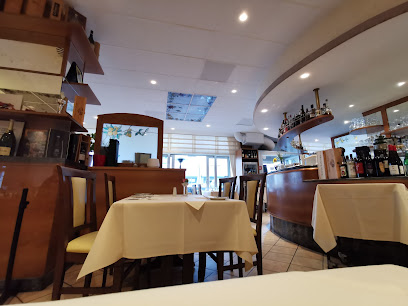
Gretchens Restaurant Koblenz Altstadt - Koblenz
Experience authentic German cuisine at Gretchens Restaurant in Koblenz's historic Altstadt, where every dish tells a story.
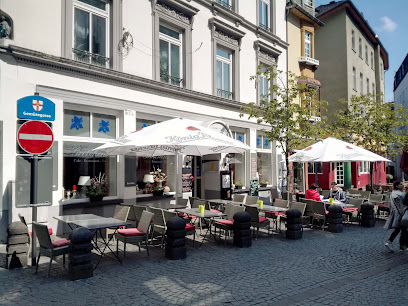
Gerhards Genussgesellschaft - Koblenz
Experience gourmet dining at Gerhards Genussgesellschaft in Koblenz—where tradition meets innovation in every bite.
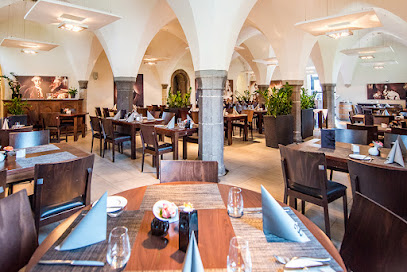
Markets, malls and hidden boutiques
LÖHR CENTER Koblenz
Experience shopping, dining, and entertainment at LÖHR CENTER Koblenz, the ultimate destination for tourists seeking local culture and vibrant commerce.
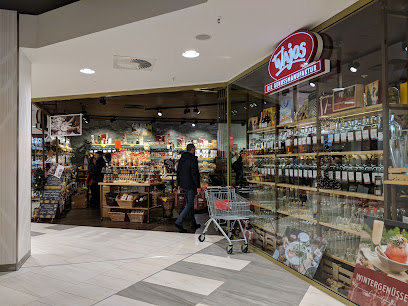
Forum Mittelrhein Koblenz
Explore the vibrant Forum Mittelrhein in Koblenz, where shopping meets dining and entertainment in a modern setting.
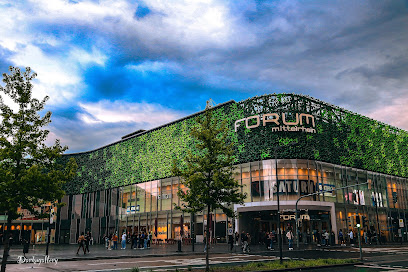
GALERIA Koblenz
Explore the vibrant GALERIA Koblenz - your ultimate shopping destination for fashion, home goods, and gourmet delights in the heart of Koblenz.
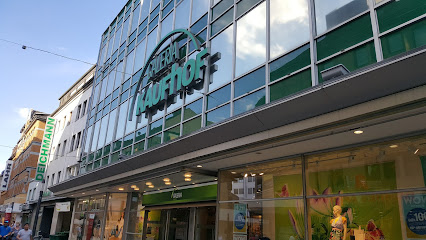
TK Maxx
Explore TK Maxx in Koblenz for a treasure trove of discounted fashion, home goods, and unique accessories that won't break the bank.
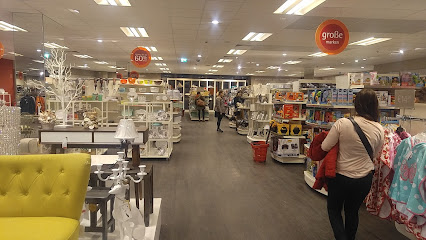
Kunstgässchen Koblenz
Explore Kunstgässchen Koblenz, a vibrant shopping destination where local crafts and art come together in the heart of Koblenz.
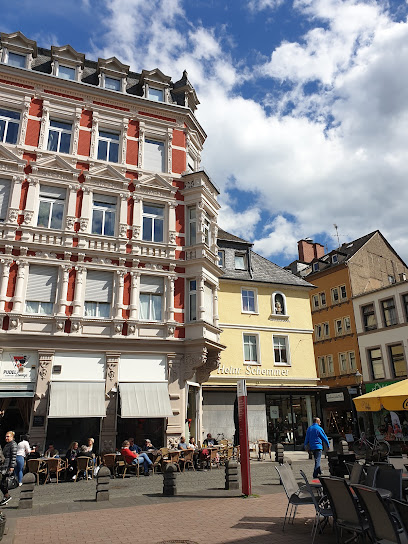
CTU Koblenz Marlon Pitanti
Discover a collectible haven at CTU Koblenz Marlon Pitanti, the ultimate destination for trading cards and figurine enthusiasts in Koblenz.
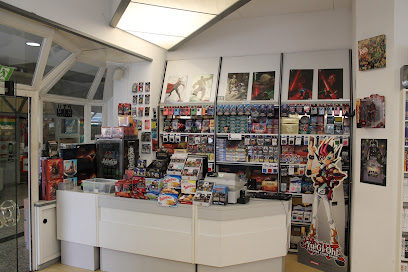
G-Star
Explore G-Star in Koblenz for trendy denim, stylish clothing, and fashionable accessories that redefine your wardrobe.
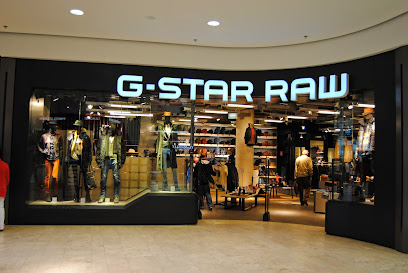
Commes GmbH
Explore the finest selection of chinaware at Commes GmbH in Koblenz, where craftsmanship meets elegance.
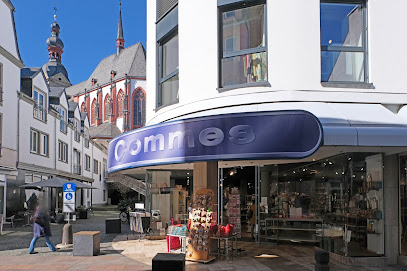
Unicorn Koblenz
Explore Unicorn Koblenz, a magical metaphysical supply store offering crystals, tarot cards, and spiritual tools for your mystical journey.
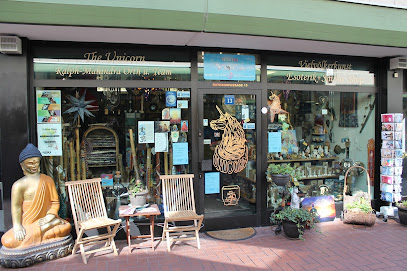
World - luxury fashion store
Explore Koblenz's premier luxury fashion store, featuring exclusive clothing, accessories, and shoes for a stylish shopping experience.
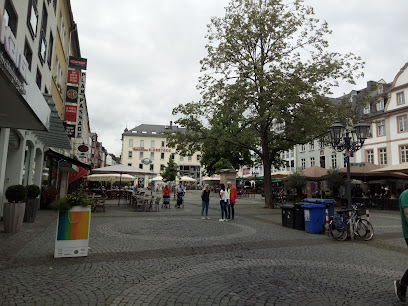
Essential bars & hidden hideouts
Deutsches Eck
Discover the iconic Deutsches Eck in Koblenz, where the majestic Rhine and Mosel rivers meet, featuring historic monuments and breathtaking views.
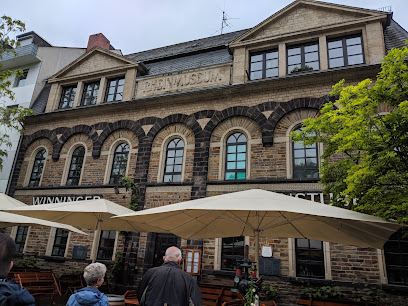
Altes Brauhaus
Experience authentic German cuisine and local brews at Altes Brauhaus, a must-visit brewpub in the heart of Koblenz.
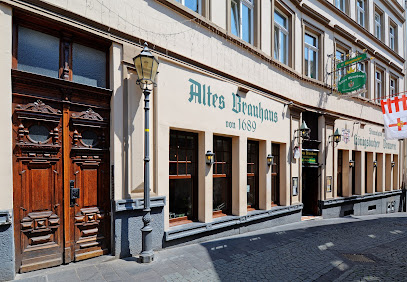
Einstein Koblenz
Experience the vibrant culinary scene at Einstein Koblenz, where delicious breakfasts, brunches, and cocktails await in a stylish setting.
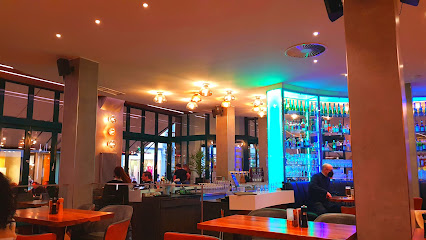
Königsbacher Biergarten am Deutschen Eck GmbH
Experience the best of German beer culture at Königsbacher Biergarten, where tradition meets relaxation in beautiful Koblenz.
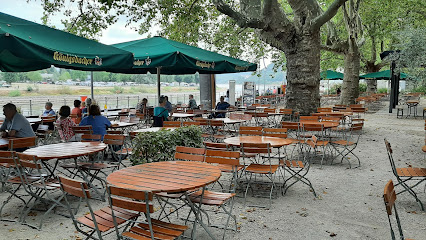
Winninger Weinstuben
Discover the best local wines at Winninger Weinstuben, a cozy wine bar in Koblenz offering a delightful selection and warm ambiance.
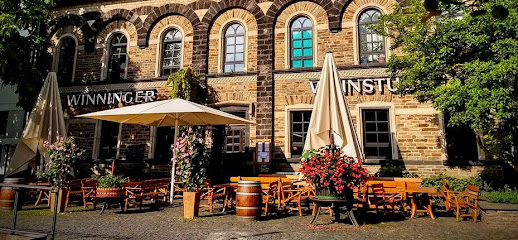
Zum Schiffchen
Discover the heart of Koblenz at Zum Schiffchen, where authentic German cuisine meets a cozy pub atmosphere.
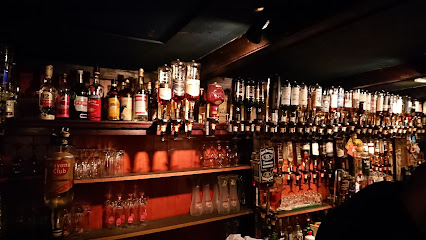
Daddy-O's - Koblenz
Experience the vibrant nightlife of Koblenz at Daddy-O's, where innovative cocktails and a lively atmosphere await.
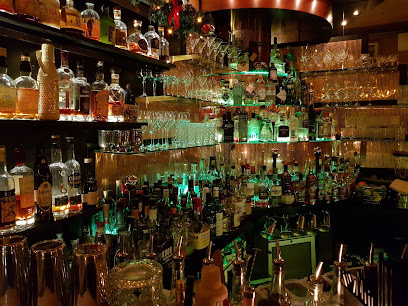
EXCALIBUR - The Rock Cafe
Discover the vibrant atmosphere and rock 'n' roll spirit at EXCALIBUR - The Rock Cafe, a must-visit bar in Koblenz for cocktails and live music.
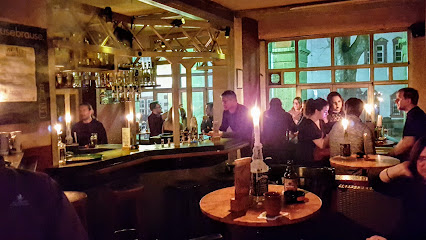
Public Lounge Bar - Koblenz
Experience the lively atmosphere of the Public Lounge Bar in Koblenz, where great drinks and a vibrant crowd come together for unforgettable nights.
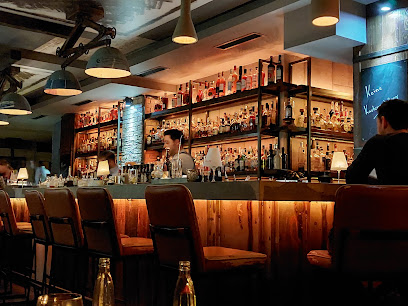
McCoy - The Highball Ltd.
Discover the art of cocktail making at McCoy - The Highball Ltd., a chic cocktail bar in the heart of Koblenz offering innovative drinks and vibrant ambiance.
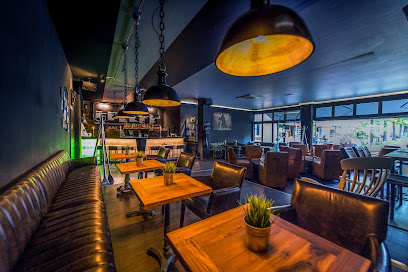
Local Phrases
-
- HelloHallo
[hah-loh] - GoodbyeAuf Wiedersehen
[owf vee-der-zay-en] - YesJa
[yah] - NoNein
[nine] - Please/You're welcomeBitte
[bih-tuh] - Thank youDanke
[dahn-kuh] - Excuse me/SorryEntschuldigung
[ent-shool-dee-goong] - How are you?Wie geht es dir?
[vee gayt es deer] - Fine. And you?Gut. Und dir?
[goot oont deer] - Do you speak English?Sprechen Sie Englisch?
[shpre-khen zee eng-leesh] - I don't understandIch verstehe nicht
[ikh fer-shte-he nikht]
- HelloHallo
-
- I'd like to see the menu, pleaseIch möchte bitte die Speisekarte sehen
[ikh merkh-teh bih-tuh dee shpah-zuh-kahr-teh zay-en] - I don't eat meatIch esse kein Fleisch
[ikh ess-uh kine flysh] - Cheers!Prost!
[prohst] - I would like to pay, pleaseIch möchte bitte bezahlen
[ikh merkh-teh bih-tuh beh-tsah-len]
- I'd like to see the menu, pleaseIch möchte bitte die Speisekarte sehen
-
- Help!Hilfe!
[hil-feh] - Go away!Geh weg!
[geh vehg] - Call the Police!Rufen Sie die Polizei!
[roo-fen zee dee po-lee-tsai] - Call a doctor!Rufen Sie einen Arzt!
[roo-fen zee i-nen ahrts] - I'm lostIch habe mich verirrt
[ikh hah-buh meekh feh-rirt] - I'm illIch bin krank
[ikh been kr-ahnk]
- Help!Hilfe!
-
- I'd like to buy...Ich möchte ... kaufen
[ikh merkh-teh ... kow-fen] - I'm just lookingIch schaue nur
[ikh sh-ow-eh noor] - How much is it?Wie viel kostet es?
[vee feel kohs-tet es] - That's too expensiveDas ist zu teuer
[dahs ist tsoy toy-er] - Can you lower the price?Können Sie den Preis senken?
[kuh-nen zee den prees zehn-ken]
- I'd like to buy...Ich möchte ... kaufen
-
- What time is it?Wie spät ist es?
[vee shpeht ist es] - It's one o'clockEs ist ein Uhr
[es ist iyn oor] - Half past (10)Halb zehn
[halb tsehn] - MorningMorgen
[mohr-ghen] - AfternoonNachmittag
[nahkh-mee-tahk] - EveningAbend
[ah-bent] - YesterdayGestern
[geh-stern] - TodayHeute
[hoi-teh] - TomorrowMorgen
[mohr-ghen] - 1eins
[iyns] - 2zwei
[tsvai] - 3drei
[dry] - 4vier
[feer] - 5fünf
[fuhnf] - 6sechs
[zeks] - 7sieben
[zee-ben] - 8acht
[ahkt] - 9neun
[noyn] - 10zehn
[tsehn]
- What time is it?Wie spät ist es?
-
- Where's a/the...?Wo ist ein/der...?
[vo ist iyn/dehr] - What's the address?Was ist die Adresse?
[vahs ist dee ah-dreh-seh] - Can you show me (on the map)?Können Sie mir zeigen (auf der Karte)?
[kuh-nen zee meer tsee-gn (owf dehr kahr-teh)] - When's the next (bus)?Wann kommt der nächste (Bus)?
[vahn kohmt dehr n-ehk-stuh (boos)] - A ticket (to ....)Eine Fahrkarte (nach ....)
[iyn-uh fahr-kahr-teh (nahkh)]
- Where's a/the...?Wo ist ein/der...?
History of Deutsches Eck
-
Deutsches Eck, translating to 'German Corner', is situated at the convergence of the Rhine and Moselle rivers. This unique geographical location has historically been of strategic importance, serving as a key trading and military point. The Romans recognized its potential and established settlements in the area, making it a prominent location during their reign.
-
In 1897, a monumental equestrian statue of Kaiser Wilhelm I was unveiled at Deutsches Eck, symbolizing the unification of Germany in 1871. This statue was designed by sculptor Bruno Schmitz and became a national symbol, reflecting the pride and aspirations of the German Empire during that era. The monument stands as a reminder of the imperial past and the complicated history of German nationalism.
-
During World War II, Koblenz, including Deutsches Eck, suffered significant damage from bombing raids. The region's strategic importance as a military hub made it a target. After the war, the area underwent extensive reconstruction, and the Kaiser Wilhelm monument was restored in 1948, symbolizing resilience and the desire for peace in post-war Germany.
-
Today, Deutsches Eck is not only a historical site but also a cultural hub. It hosts various events and festivals, including the annual Rhine in Flames festival, which celebrates the region's rich history and heritage. The area is also home to the Bundesgartenschau, a federal horticultural show that highlights the natural beauty of Koblenz and the surrounding region.
-
In 2002, the Upper Middle Rhine Valley, which includes Koblenz and Deutsches Eck, was designated as a UNESCO World Heritage Site. This recognition underscores the area's cultural significance, characterized by its dramatic landscapes, historic towns, and the vineyards that line the Rhine. It has become a focal point for tourism and historical appreciation in the region.
Deutsches Eck Essentials
-
Deutsches Eck is easily accessible from various neighborhoods in Koblenz. If you're coming from the main train station (Koblenz Hauptbahnhof), you can walk approximately 20 minutes along the banks of the Rhine River, enjoying the scenic views. Alternatively, take bus lines 1, 5, or 6 from the station, which will drop you off close to the area. If you are in the Altstadt (Old Town), it’s just a short stroll across the bridge or along the riverside promenade.
-
Deutsches Eck is pedestrian-friendly, making it easy to explore on foot. For those wishing to use public transport, local buses connect to other parts of Koblenz. Bicycle rentals are also available, allowing visitors to enjoy the riverside paths at a leisurely pace. Additionally, guided boat tours operate along the Rhine and Moselle rivers, providing a unique perspective of the area.
-
Deutsches Eck is considered a safe area for tourists, but standard safety precautions should still be observed. Avoid walking alone in poorly lit areas at night, particularly around the docks. While Koblenz generally has low crime rates, petty theft can occur in crowded tourist spots, so be cautious with your belongings.
-
In case of emergency, dial 112 for immediate assistance in Germany. The nearest hospital is the Klinikum Koblenz-Montabaur, located a short drive away. For non-emergency medical needs, pharmacies can be found throughout the area. Always carry a copy of your travel insurance information and emergency contact numbers.
-
Fashion: Do wear comfortable clothing suitable for walking. Avoid overly casual attire when visiting religious sites. Religion: Do respect local customs, particularly at the nearby Basilica of St. Castor. Public Transport: Do validate your ticket before boarding. Don't speak loudly or make a disturbance while on public transport. Greetings: Do greet locals with a friendly 'Hallo' or 'Guten Tag'. Eating & Drinking: Do try local specialties at nearby cafés. Don't consume food or drinks in places where it is prohibited, such as certain public transport.
-
To experience Deutsches Eck like a local, visit the weekly markets or festivals if your schedule permits. Engage with local vendors and try traditional foods. Take a moment to enjoy the view from the Ehrenbreitstein Fortress, accessible by a scenic cable car ride. Lastly, explore the nearby Moselle River, where you can find charming wine taverns offering local wines.
Nearby Cities to Deutsches Eck
-
Things To Do in Bonn
-
Things To Do in Cologne
-
Things To Do in Frankfurt
-
Things To Do in Echternach
-
Things To Do in Vianden
-
Things To Do in Dusseldorf
-
Things To Do in Grevenmacher
-
Things To Do in Clervaux
-
Things To Do in Aachen
-
Things To Do in Diekirch
-
Things To Do in Spa
-
Things To Do in Remich
-
Things To Do in Wiltz
-
Things To Do in Essen
-
Things To Do in Heidelberg








